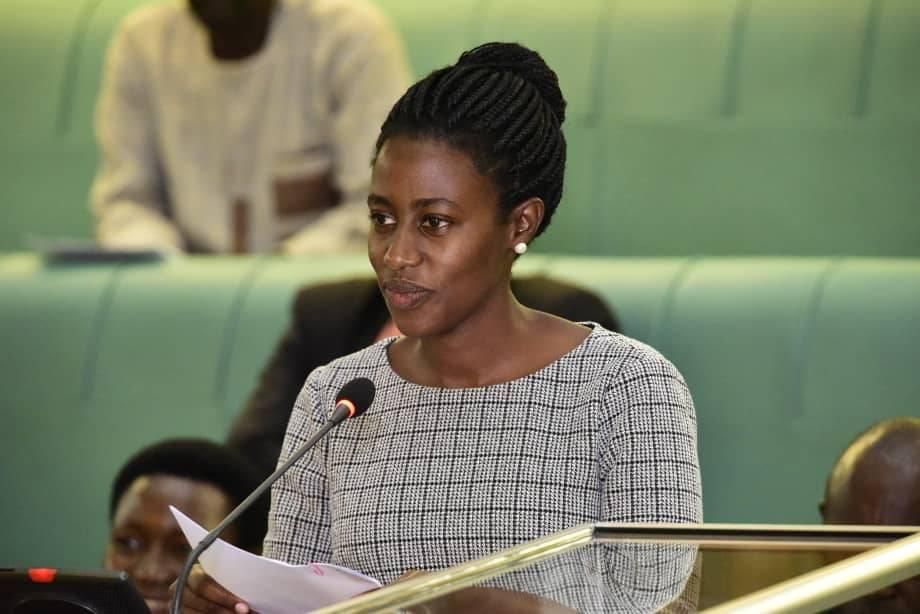The political landscape in Rakai District is undergoing a major transformation as the National Unity Platform (NUP) and independent candidates continue to gain momentum, threatening the long-standing dominance of the ruling National Resistance Movement (NRM).
Political observers say the winds of change are blowing strongly against the NRM, which has maintained firm control over Rakai for nearly four decades.
Traditionally an NRM stronghold, Rakai now appears to be shifting politically as the January 2026 general election approaches. Many residents—especially the youth—cite unemployment, poor service delivery, and corruption as key reasons for their growing disillusionment with the ruling party.
“The youth are tired of empty promises. They want leaders who can relate to their struggles, not those who have stayed in power for decades with nothing to show,” said James Kakaire, a resident of Kasankala Sub-county.
Kakaire further pointed to the government’s unfulfilled pledge to construct the Lumbugu–Lwamaggwa–Lyantonde Road, noting that only six kilometres of tarmac have been completed since the promise was made.
At the centre of Rakai’s shifting politics is Juliet Kinyamatama Suubi, the District Woman Member of Parliament who has represented the area since 2016 under the NRM banner. But this election cycle, she faces her toughest race yet.
Her two main challengers—Asha Lubyayi Kayanja, an independent candidate who broke ranks with the NRM after losing in the primaries, and Grace Nalubega, the NUP flagbearer—have significantly eroded her traditional support base.
The race took a dramatic turn in late July when Rtd. Maj. Gen. Elly Kayanja, the former Operation Wembley Commander and a respected figure in Rakai, publicly criticised the NRM’s internal election process, alleging malpractice during the July 17th primaries.
In an interview with the Nile Post, Gen. Kayanja decried what he called a “moral crisis” within the NRM, warning that the party’s founding democratic ideals were being undermined.
He urged the country to revisit the NRA’s historic 10-Point Programme, saying it represented values that had since been lost.
“We paid a heavy price to bring democracy to Uganda, but the government we fought for is not what we are seeing today. We cannot accept this happening,” said the retired general, who joined the NRA in 1982 .
He likened the alleged irregularities to the infamous 1980 election rigging that triggered the NRA guerrilla war against Milton Obote’s government.
His sister, Asha Lubyayi Kayanja, who lost to Kinyamatama in the NRM primaries, accused the incumbent of using state machinery to intimidate voters and manipulate results.
“Drone cars without number plates roamed the area, creating fear. People were intimidated and bribed to stand behind my opponent. It was not a fair election,” she told the Nile Post.
According to official results announced by Rakai District NRM Election Registrar Robert Ssesanga, Kinyamatama garnered 44,556 votes, defeating Lubyayi with 32,174 votes, while Robina Kamazinga came third with 3,223 votes.
Despite the allegations, the NRM election disputes tribunal dismissed Lubyayi’s petition, citing insufficient evidence to warrant a fresh poll.
“The petitioner failed to prove the allegations to the required standard,” the tribunal ruled.
Undeterred, Lubyayi chose to contest as an independent— a move analysts say has split the NRM vote and reshaped the district’s political balance.
“Kayanja’s decision to stand as an independent has divided the ruling party’s support base. Her supporters now see her as a symbol of resistance against injustice within the NRM,” noted political analyst David Ssenkungu.
The division, analysts add, has strengthened NUP’s Grace Nalubega, whose message of change and accountability continues to attract frustrated voters.
In Buyamba Constituency, incumbent MP Gyaviira Ssemwanga (NRM), who ran unopposed in 2021, now faces strong opposition from Amos Mandela, a veteran politician and former MP (2011–2016), running as an independent, and Osborn Desire Kayima (NUP), whose youthful campaign has energized younger voters.
“Young people in Buyamba are mobilising themselves. They want to prove that the days of NRM dominance are numbered,” said campaign volunteer Moses Asiimwe.
In Kooki Constituency, the exit of long-serving MP Boaz Kasirabo has opened the race to new contenders. Didas Kabumbuza Tayebwa (NRM) has emerged as a frontrunner, reportedly with Kasirabo’s quiet endorsement.
“Tayebwa has shown political maturity and a deep understanding of local issues. People feel he can represent them better,” said Grace Nabirye, a teacher from Kyalulangira.
However, Tayebwa faces a stiff challenge from Eriab Ssango (NUP), while Lecoboam Ssengabi (Democratic Front) and Samuel Ssengabi (Independent) are also in the race. Analysts describe the contest as a two-horse race between Tayebwa and Ssango—mirroring the broader national battle between NRM loyalists and the rising NUP movement.
Observers attribute the NRM’s weakened position in Rakai to three main factors: the growing influence of youthful voters, deep internal divisions, and dissatisfaction with local service delivery. Poor roads, underfunded health centres, and struggling schools have intensified voter frustration.
“We vote in every election, but our livelihoods don’t change. Maybe it’s time to try something different,” said one resident.
As campaigns intensify ahead of the 2026 general election, Rakai has emerged as a key battleground in Uganda’s shifting political landscape. Whether the NRM can reclaim its dominance—or whether NUP and independents will complete their takeover—remains to be seen.
What is certain, however, is that the era of unquestioned political control in Rakai is drawing to a close.


